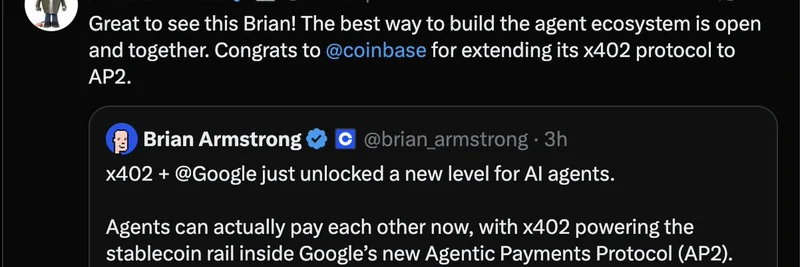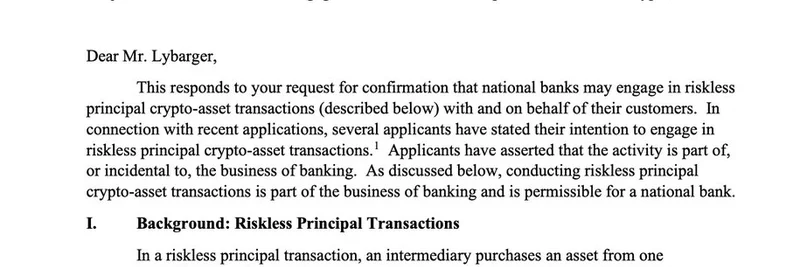In a recent thread on X, Yash from SendAI laid out a compelling thesis: AI agents might just be the sneaky way stablecoins finally go mainstream. If you've been wondering why stablecoins—like USDC or USDT—haven't taken over the world yet despite their promise of fast, cheap, and borderless payments, Yash's take offers some fresh insights. Let's break it down.
Why Stablecoins Haven't Exploded Yet
Stablecoins are cryptocurrencies pegged to stable assets like the US dollar, making them less volatile than something like Bitcoin. They're great for transactions, but adoption has been slow. As Yash points out, upgrading legacy systems—like traditional banking networks—is tough. Merchants don't want to switch from Visa or Mastercard, and banks aren't keen on disrupting their own business. Positive regulations are helping, but it's not enough for a massive shift.
Enter AI agents. These are autonomous software programs powered by AI that can perform tasks on their own, like booking flights or managing finances. Yash argues that agents could make stablecoins the default for payments in this new "agentic web." Why? Because an agent with a crypto wallet will naturally prefer stablecoins—they're fast, programmable, and don't rely on clunky traditional rails.
Big Players Betting on This
Look at Stripe, a payments giant. They've been snapping up crypto-related companies: Stablecoin for on/off-ramps (converting fiat to crypto and back), Privy for wallets, and Tempo for Layer 1 blockchain tech focused on agentic payments. Stripe even has an "agent kit" to experiment with this. It's a clear signal they're preparing for a world where AI handles transactions seamlessly with stablecoins.
And then there's the exciting news highlighted in the thread: Google's announcement of the Agentic Payments Protocol (AP2), with Coinbase's x402 at its core. x402 is Coinbase's protocol for pay-as-you-go or per-API-call payments, perfect for agents. In the embedded tweets, Coinbase CEO Brian Armstrong celebrates how x402 enables agents to pay each other using stablecoins, and Google CEO Sundar Pichai congratulates them on extending it to AP2. This collaboration between tech titans could accelerate the agent ecosystem.
How Agents Will Use Stablecoins
Yash outlines a few paths for adoption:
Pay-per-use standards like x402: Agents could pay for services on the fly, with protocols baked into multi-call protocols (MCPs) for seamless API integrations.
Adoption by giants: Companies like Stripe and Visa are already hinting at preferring stablecoins for agent payments.
Crypto's edge in fintech: Traditional finance is risk-averse and lacks composability—the ability to mix and match services easily. Blockchains like Solana shine here with programmable policies, such as spending limits, making them ideal for complex agent workflows.
New business models: The web runs on ads today, but agents could shift us to intent-based interactions. Imagine pay-per-conversion where agents get rewarded for actions, with revenue shared via smart contracts. For example, if a Perplexity AI agent books through Airbnb, the payment in USDC could automatically split commissions— all enforced on-chain without middlemen.
This is huge for crypto, especially meme tokens. On chains like Solana, where meme coins thrive due to low fees and high speed, agents could automate trading, liquidity provision, or even community rewards. Picture an AI agent scouting hot meme launches, using stablecoins to buy in early, or distributing airdrops programmatically. It lowers barriers for new users and could pump liquidity into the meme ecosystem.
The Road Ahead
To make this happen, we need solid on-chain infrastructure for agents—wallets, tooling, and more. Shoutout to Coinbase for pushing x402, and Yash hopes Solana leads as part of its "internet capital markets" vision. As AI penetrates more of our lives, crypto's agility could give it a first-mover advantage over slow-moving tradfi.
If you're in the meme token space, keep an eye on this. Agents aren't just sci-fi; they're the bridge to making stablecoins (and by extension, meme coins) everyday tools. What do you think—will agents flip the script on payments? Drop your thoughts in the comments.
For more on emerging blockchain tech and meme token insights, stick with Meme Insider.




